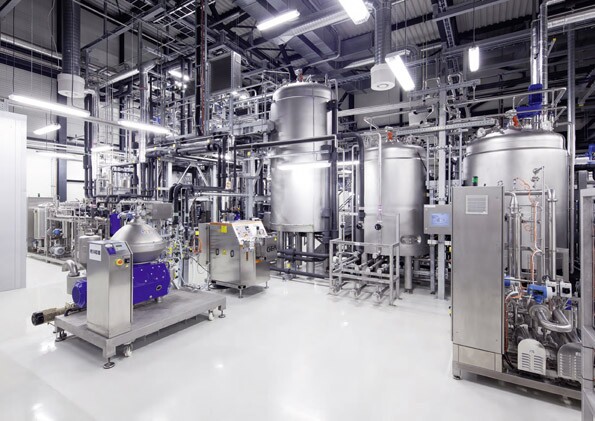Just weeks after producing its first batch of synthetic diesel fuel made from carbon dioxide and water, Audi has laid claim to another synthetic, clean-burning and petroleum-free fuel called "e-benzin." The fuel was created by Audi's project partner Global Bioenergies, in France.
In late 2014, Global Bioenergies started up the fermentation unit for a pilot program to produce gaseous isobutane from renewable biomass sugars such as corn-derived glucose. Gaseous isobutane is a sort of raw material for the petrochemical industry that can then be refined into a variety of plastics, fuels and other applications.
The next step in the process was to run the material through a conditioning and purification process, allowing it to be collected and stored in liquid form under pressure. Some of it was then sent to Germany to be converted into isooctane fuel, creating a pure, 100 octane gasoline.
"To me this is a historic moment," says Global Bioenergies CEO Marc Delcourt. "It is the first time that we have produced real gasoline from plants."
Isooctane is currently used as an additive to improve fuel quality, but could also be used a stand-alone fuel. Audi calls the final, refined form of the fuel "e-benzin" and claims that it burns clean due to its lack of sulfur and benzene. Also, its high grade enables it to power engines using high compression ratios for more efficiency.
Audi will test the fuel composition and conduct engine tests to see how it performs before eventually trying it out in vehicle fleets. Delcourt says he could see it being used in consumer cars on a large scale "very soon."
"We thinking we're bringing green-ness to a field that desperately needs green-ness," says Rick Bockrath, vice president for chemical engineering at Global Bioenergies. "It's basically how we're moving away from an oil-based economy towards something that has a renewable, sustainable future to it."
Audi and Global Bioenergies hope to tweak the production process in the future so that biomass is no longer required and e-benzin can be created using only water, hydrogen, carbon dioxide and sunlight. We saw a similar project in Europe in 2014 that sought to make jet fuel.

As part of its next phase, the company is building a new demonstration plant in Germany, similar to the one pictured above. The facility will be 10 times larger than the one in France, and able able to produce 100 tons (90.7 tonnes) of isooctane and high purity isobutane per year as soon as 2016.
Take a quick tour of the pilot plant producing renewable isooctane in France in the promotional video below.
Sources: Audi, Global Bioenergies





